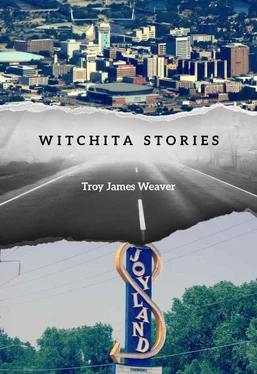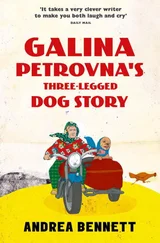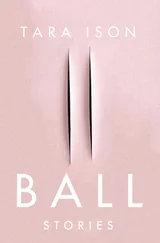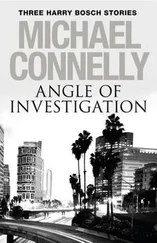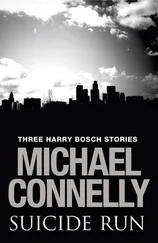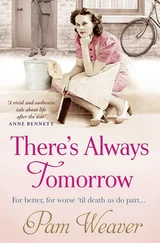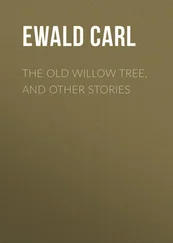My dad had this friend he hadn’t seen in like twenty years. Supposedly he was a great jazz musician who just couldn’t seem to get his shit together. He drank. Too much, they said. And he lost everything because of it, became a homeless untouchable who walked the streets by day and slept under our city’s bridges by night. My dad saw him on the street one day, recognized him beneath his raggedy-ass street clothes, and brought him home, set him up with a cot in the basement, helped him dry out, and then told him to get back out into the city and find himself a job. Sometimes my mom would give him rides. I’d go with them. We’d take him downtown, or sometimes farther east, and just drop him off. My mom would ask him what time she should pick him up and he’d tell her, No, I’ll walk back. Truly it’s okay. You have done more than enough. And, remarkably, he would always make it back by dinner, no matter how far it was we’d left him. I remember that he spent Christmas with us. He gave me an old tennis ball as a gift. I think it was even wrapped. It was brown from use, worn nearly smooth. It was a little strange to be honest. But he had nothing, absolutely nothing, except for some raggedy clothes and a guitar he considered his soul. And truth is, I came to really love my tennis ball. It was the gesture, really. I don’t recall him giving anything to anybody else, and, at the time, I thought that meant something. A week or two later, my parents kicked him out. He’d been drinking the Listerine to get a good buzz going, both in the mornings and in the evenings. Once night my mom said to my dad: What’s going on? I’ve bought two bottles of Listerine in a week . My dad’s heart had sunk into him. I could see it on his slack face. He knew what was what, he always does.
I kept the tennis ball for a long time. One day our dog took off with it and dropped it in the middle of the road. I went after it but wasn’t quick enough. It rolled through a garden-hose puddle — then the last thing I remember was the sound it made: thud-thud thud-thudding in the guts of the gutter.
Picture this: Budd Dwyer at his last press conference — cameras rolling, flashbulbs flashing, ratings rising, watchers watching, recorders recording, watchers watching, rewinders rewinding, watchers watching, pausers pausing, watchers watching, pausers pausing, watchers watch—
Growing up, our neighbor across the way was an alcoholic in his late thirties or early forties who lived with his mom. He was a hillbilly from Texas. He walked the walk and talked the talk — loved all things beer and automobiles, all things pussy and g-string. He told me once that he wanted “Freebird” played at his wedding, if he ever met a girl worthy of marriage, and then, another time, he said he wanted the same song played at his funeral. And I thought: What’s the difference? His hair looked like burnt wool. He also had a face full of beard. He liked to think he was good friends with my parents and came over often to visit damn near daily. You could tell when he visited with them he was trying his best to behave himself. When they weren’t around, he’d say the filthiest things — like, if he saw a nice-looking woman out with her kids or walking the dog, he would pause, mid-sentence, stare her down, and say something like: Goddamn, Jimmy Dean! Look at that. I’d eat the peanuts out of her shit . He also had this odd crush on my sister. You could tell. It was in the way he looked at her, the words he used when speaking to her. And even though he was obnoxious, she was gentle with him in her gestures and attitude, though she didn’t have to be, and all this even after all the ugliness had come out of him. See, he had come over drunk one night after my sister had left the house, because he was jealous of her new boyfriend. He made the mistake of telling my dad exactly how he felt about it. He said, She’s a slut for getting with that nigger. And my dad, the look in his eyes, I thought he was going to kill him. He got up from the table and right into our neighbor’s face with his face and said he would kill him if he ever spoke that way about his daughter again. Our neighbor, poor man, collapsed beneath the weight of his tears, begging my dad’s forgiveness, and my dad, he sat him down and said, I can’t forgive you, no, not for that, but I’ll give you a cup of coffee. And so it was — for the next two hours: the two of them sucking back smoke, drinking coffee, trying to cleanse themselves of the demons of their pasts through a shared knowledge of trauma. But then my dad, he got all serious like he does, and said, You can’t blame anybody but yourself for your problems. You are your problems. At first I thought he said it for the benefit of our neighbor. But then I thought about it. I mean, it was different than the usual preachments I was used to. There was a rare quaver in his voice, a choked-up sound. He said it just so he could say it to himself, because he realized that in a way, he was being confronted with a mirror, and he suddenly felt terrified for himself and everybody he’d ever loved.
The first time I met this guy it was at a DIY show at this old auto repair shop some of my friends rented. I was there so often I was nearly a fixture. We were drinking whiskey, me and my buddy who played in one of the bands. There were a lot people there. We were partying on the roof after the show, watching fireworks illuminate the downtown skyline. I went inside to piss and when I came out there was this guy with a ripped shirt, a nose-piercing, and long unwashed hair. I was walking past him to get back outside when he grabbed me by the shirt, pulled me in close, and said, You’re a computer, man. We’re all computers. I laughed, and tried to shake him off me, but he gripped me tighter and said: CPU. CPU. CPU. And then I just lost it. I shoved him with all my weight into the refrigerator and walked back out onto the rooftop. When the door closed I said, Refrigerator. Turns out, dude was a heroin user, though I’m sure he was on something else that first run-in we had at the show. He started selling to people in the music scene. I didn’t like it at all. But there were so many of my friends who were friends with him that I had to be cordial when we bumped into each other. I didn’t see him for a long time, and then, maybe a year later, I heard from somebody that he was in college and off the drugs. And I thought, Okay, good. Even then I didn’t really like him I thought it was cool he was figuring things out. And then, out of nowhere, he died. He was my age when he died, plus or minus a few months. What happened was he relapsed, one time, overdosed, and died. And I felt sadder than sad. And then I felt guilty for feeling sad. Honestly, I didn’t understand what it was I was feeling and it went on like that for a while. Then, one day I realized I wasn’t sad at all, probably never had been. I almost broke down when I thought of it. I was driving and I held in the tears so I wouldn’t crash the car. When you realize something like that, that you don’t feel a great loss or even sadness for someone who has recently passed away, it comes out of nowhere, hits you in the teeth like a ton of bricks. It is the saddest kind of sad — the saddest sad of all.
You ever smoke coke-dusted weed? Shit, the guy didn’t even tell me what it was until after we’d smoked it. Luckily it didn’t freak me out like I thought it would. It was just like there were these tiny angels climbing up and down a million microscopic structures crosshatched in my veins. I couldn’t stop smiling. My heart was trying out for the Olympics. I could just die, right then, and be happy about the next day’s obituary because I had felt that good at least once while I was alive and that was enough and it felt worth it. I was like fourteen or fifteen. It seems like everything happened when I was fourteen or fifteen. But maybe that’s the way it is with everybody.
Читать дальше
